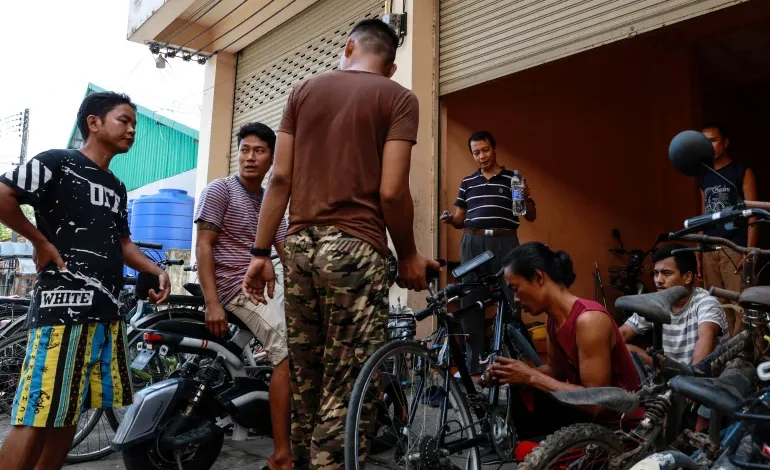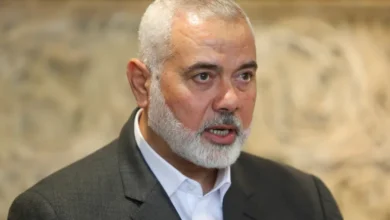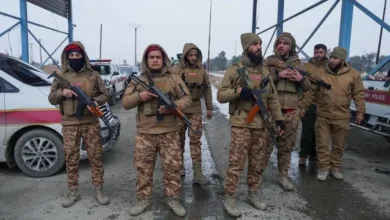Soldier students: Job training gives hope to Myanmar’s military defectors

At a secret gathering above a cafe in a town on the Myanmar-Thailand border, Ko Aye examined the inside of an Android phone alongside 10 fellow defectors from Myanmar’s military and police forces.
The trainer, an ex-captain in the Myanmar army, guided the group through the process of repairing a mobile phone, a skill that could help them build a future beyond the conflict they recently left behind.
Having fled the notorious institutions they were once part of, these former police officers and soldiers now live in Thailand, near the Myanmar border, where they are learning new skills to adapt to a peaceful civilian life.
“If Myanmar gets peace one day, I’ll return and repair phones there,” said Ko Aye, a transgender man, for whom the workshops mark a new chapter in a resilient life journey.
“Although I’ll have to practise on some broken ones at home first,” Ko Aye added with a smile, wearing one of his homemade tie-dye shirts – a craft he taught himself to earn money.He retrained as a medic with the country’s pro-democracy resistance movement and it was during that time that Ko Aye witnessed firsthand the devastation of air attacks on the civilian population who are resisting military rule in Myanmar.
Eventually, Ko Aye fled to Thailand in search of safety and mental recuperation.
He is now part of the first cohort of graduates from a vocational training programme launched by People’s Goal, an advocacy group for military defectors.
Alongside fixing mobile phones, the programme offers bicycle, e-bike and motorcycle repair training – skills that can help forge a new path for those who have taken part in years of waging war.
‘Our main goal is to give hope’
Many defectors from Myanmar’s army struggle to secure work and accommodation when they arrive in Thailand after fleeing Myanmar. They lack legal residency, exacerbating fears of being arrested by Thai immigration authorities and deported to their country, where they could face torture, long prison sentences, or even execution.
Fearing infiltration by military spies into their midst, most of the soldiers-turned-students on the skill training programme prefer to use aliases to protect their identities and shield their families from any potential retaliation back home.
“Our main goal is to give hope for people who want to defect,” said Naung Yoe, 40, a former army major who defected three years ago.










